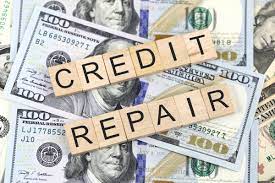Learn the essential steps for credit repair. This guide provides practical tips and strategies to improve your credit score, helping you regain financial control.
Understanding Credit Scores: The Foundation of Credit Repair
Credit scores are like financial report cards, indicating to lenders how responsibly you handle credit. A high score can open doors to favorable interest rates and loan terms, while a low score can hinder your financial opportunities. Understanding the components of your credit score is the first step in credit repair. The main factors include payment history, credit utilization, length of credit history, new credit, and types of credit used.
How Credit Reports Work: Your Financial Narrative
Your credit report is a detailed account of your credit history, compiled by credit bureaus. It includes your personal information, credit accounts, inquiries, and public records. This report is the basis for your credit score and is used by lenders to assess your creditworthiness.
Common Errors and Their Impact: Identifying Discrepancies
Errors on credit reports are not uncommon and can range from minor inaccuracies to significant discrepancies. These can include incorrect personal information, outdated account statuses, or erroneous debt listings. Such errors can negatively impact your credit score, making it essential to identify and rectify them promptly.
How to File a Dispute: Correcting Report Errors
If you find errors on your credit report, the next step is to file a dispute with the credit bureau. This involves writing a detailed letter explaining the inaccuracies and providing any supporting documentation. It’s important to be clear, concise, and persistent.
Strategies for Negotiating with Creditors: Tackling Debt
Dealing with collections and late payments is a critical aspect of credit repair. Negotiating with creditors can sometimes lead to more favorable repayment terms or even debt settlement. It’s important to approach these negotiations with a plan and clear understanding of your financial situation.
Developing Good Credit Habits: The Path to Improvement
Repairing your credit isn’t just about fixing past mistakes; it’s also about establishing good credit habits moving forward. This includes paying bills on time, keeping credit balances low, and only applying for new credit when necessary.
Credit Repair Agencies: Do You Need Professional Help?
Credit repair agencies offer services to help repair your credit. However, it’s important to understand what these agencies can and cannot do, and to be aware of potential scams. Remember, everything a credit repair agency can do, you can do yourself for free or at a lower cost.
DIY Credit Repair: Empowering Yourself
Many aspects of credit repair can be handled on your own. Educating yourself about credit and taking proactive steps can be both empowering and effective. This includes regularly checking your credit report, disputing inaccuracies, and managing your debts responsibly.
The Role of Credit Counseling: Seeking Expert Advice
Credit counseling services can provide guidance and resources to help you manage your debts and improve your credit. These non-profit organizations offer services like budget counseling, debt management plans, and financial education.
Legal Rights and Credit Repair: Understanding the Law
It’s important to know your legal rights when it comes to credit repair. The Fair Credit Reporting Act (FCRA) and the Fair Debt Collection Practices Act (FDCPA) provide protections against unfair credit reporting and debt collection practices.
Building a Positive Credit History: Long-Term Strategies
Once you’ve addressed any issues with your credit report, focus on building a positive credit history. This involves maintaining good financial habits over time, such as consistently making on-time payments and judiciously managing credit accounts.
Monitoring Your Credit: Staying on Track
Regularly monitoring your credit report and score is crucial for maintaining good credit. This not only helps you track your progress but also enables you to quickly identify and address any future
issues. Many services offer credit monitoring, some for free, allowing you to stay informed about your credit status.
Credit Utilization Ratio: Key to a Higher Score
Your credit utilization ratio – the amount of credit you’re using compared to your total credit limit – significantly influences your credit score. Keeping this ratio low, ideally below 30%, can positively impact your credit score.
Impact of Credit Inquiries: Minimizing Negative Effects
Each time you apply for credit, a hard inquiry is recorded on your credit report, potentially lowering your score. To minimize negative effects, limit the number of credit applications and only apply for credit when necessary.
Credit Repair and Mental Health: Managing Stress
The process of repairing credit can be stressful and overwhelming. It’s important to take care of your mental health while dealing with financial challenges. This might include seeking support from professionals, family, or friends.
Success Stories: Motivation for Your Credit Repair Journey
Hearing about others’ successful credit repair journeys can be inspiring. These stories often include practical tips and demonstrate that with patience and dedication, improving your credit score is achievable.
Credit Repair: How to Repair Your Credit – Steps
Repairing your credit involves a series of steps, each crucial to improving your credit score. By understanding and methodically addressing each aspect of your credit, from disputing errors to negotiating with creditors, you can gradually improve your financial standing.
FAQs About Credit Repair
- Is credit repair worth it? Yes, repairing your credit can lead to better loan terms, lower interest rates, and increased financial opportunities.
- How long does it take to repair credit? The time it takes to repair credit varies depending on the individual’s situation, but it can take several months to a year to see significant changes.
- Can I repair my credit on my own? Absolutely. Many people successfully undertake credit repair themselves by following the steps outlined in this article.
- Do credit repair services guarantee results? No, credit repair services cannot guarantee specific results. Beware of companies that make unrealistic promises.
- How often should I check my credit report? It’s recommended to check your credit report at least once a year, though more frequent checks may be beneficial if you’re actively repairing your credit.
- Can paying off collections immediately improve my credit score? Paying off collections will improve your overall financial standing, but it may not immediately increase your credit score.
Conclusion
Repairing your credit is a journey that requires patience, discipline, and a strategic approach. By understanding your credit report, disputing inaccuracies, managing debts wisely, and developing healthy financial habits, you can gradually improve your credit score. Remember, the path to better credit is a marathon, not a sprint, and every step you take brings you closer to your financial goals.


